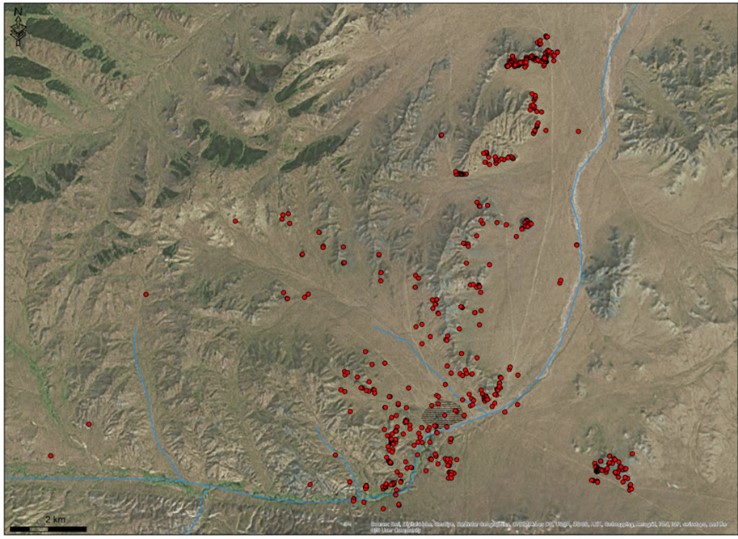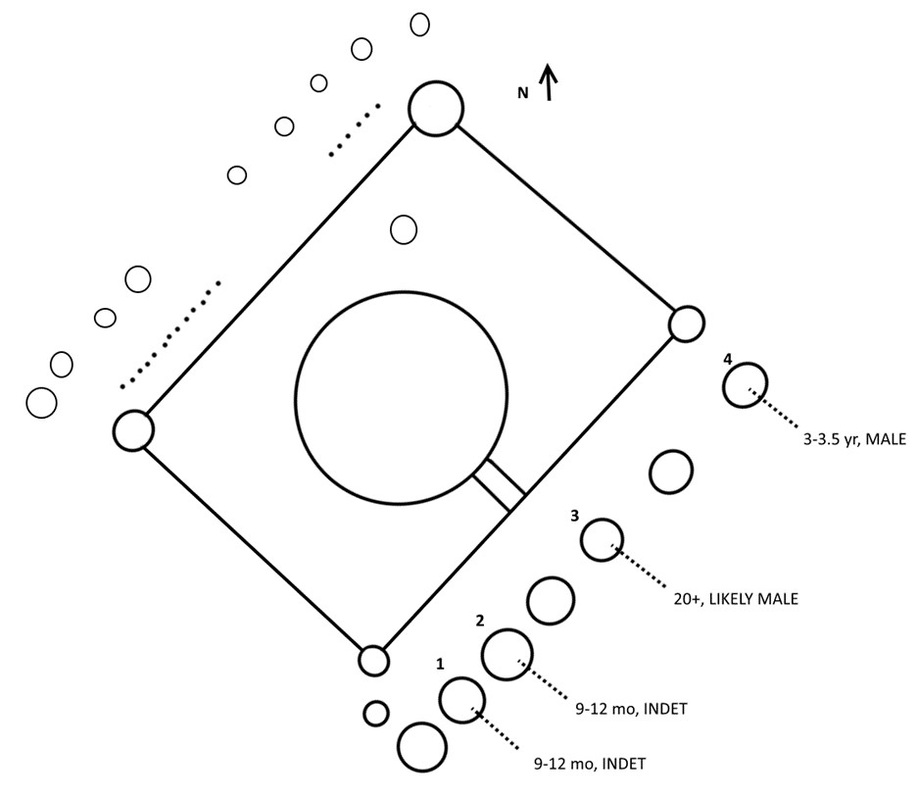Zuunkhangai
|
Moving forward, we are now expanding this multiscalar research to a major interdisciplinary project that aims at evaluating the roles of ritual and environmental conditions in the emergence and growth of supra-local communities among mobile pastoralists in the Taiga/Steppe region of northwestern Mongolia – a region that may have played an important role in the presumable initial transfers of domestic animal species into Mongolia (incl. horses) and a region seemingly located within the northern extent of the Xiongnu state - the first nomadic empire in the Eurasian Steppes. This new project expands the geographic range of our research beyond central Mongolia and the Altai region in order to provide a comparative perspective on social change in this region of the world. This is an important component of our long-term plans as the evaluation of differences between so-called ‘core’ and ‘peripheral’ communities are key to evaluating the forces driving social change and the development of societal complexity. This new research endeavor thus promises to not only generate important new comparative datasets that will help answer crucial questions about the development of societal complexity among mobile pastoralists in Mongolia, but it will also help answer fundamental questions about the role of ritual and environmental conditions in the rise, expansion and stability of early complex pastoral societies.
|

